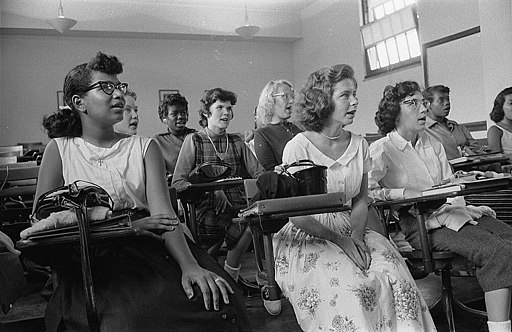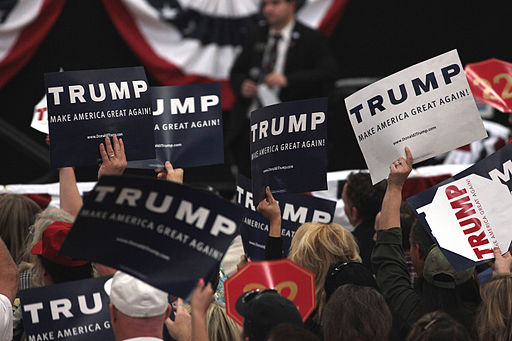Faculty Research: Dr. Janet Davis on the History of Animal Welfare
 Congratulations to Dr. Janet Davis, whose new book The Gospel of Kindness: Animal Welfare and the Making of America was released earlier this month by Oxford University Press. We've included the publisher's description, below:
Congratulations to Dr. Janet Davis, whose new book The Gospel of Kindness: Animal Welfare and the Making of America was released earlier this month by Oxford University Press. We've included the publisher's description, below:
When we consider modern American animal advocacy, we often think of veganism, no-kill shelters, Internet campaigns against trophy hunting, or celebrities declaring that they would "rather go naked" than wear fur. Contemporary critics readily dismiss animal protectionism as a modern secular movement that privileges animals over people. Yet the movement's roots are deeply tied to the nation's history of religious revivalism and social reform.In The Gospel of Kindness, Janet M. Davis explores the broad cultural and social influence of the American animal welfare movement at home and overseas from the Second Great Awakening to the Second World War. Dedicated primarily to laboring animals at its inception in an animal-powered world, the movement eventually included virtually all areas of human and animal interaction. Embracing animals as brethren through biblical concepts of stewardship, a diverse coalition of temperance groups, teachers, Protestant missionaries, religious leaders, civil rights activists, policy makers, and anti-imperialists forged an expansive transnational "gospel of kindness," which defined animal mercy as a signature American value. Their interpretation of this "gospel" extended beyond the New Testament to preach kindness as a secular and spiritual truth. As a cultural product of antebellum revivalism, reform, and the rights revolution of the Civil War era, animal kindness became a barometer of free moral agency, higher civilization, and assimilation. Yet given the cultural, economic, racial, and ethnic diversity of the United States, its empire, and other countries of contact, standards of kindness and cruelty were culturally contingent and potentially controversial. Diverse constituents defended specific animal practices, such as cockfighting, bullfighting, songbird consumption, and kosher slaughter, as inviolate cultural traditions that reinforced their right to self-determination. Ultimately, American animal advocacy became a powerful humanitarian ideal, a touchstone of inclusion and national belonging at home and abroad that endures to this day.
Teaching Stories: Featured Fall 2016 Course Offerings, Part I
Being an interdisciplinary department, American Studies has a history of offering fascinating courses about American culture, politics, and history that you cannot find anywhere else on campus. Today, we feature four of those courses taught by our stellar Ph.D. students, to be offered in Fall 2016 and Spring 2017, about fascinating and timely topics like conservative politics in America, public education, energy and oil, and the image of the American Indian. We'll feature more of our courses over the next few weeks, so stay tuned!Each of these courses is a lower division course and will fulfill your writing flag requirements.
AMS 311s: The Culture of the Right
Unique # 30555Instructor: Carrie AndersenMWF 11am - 12pmThe moniker “conservative” can apply at once to fiction authors like Ayn Rand, political theorists like Alexis de Tocqueville, Renaissance men like Henry David Thoreau, television writers like the creators of South Park, and preachers like Jerry Falwell. How? What does it mean to be conservative? How has that definition transformed over time? And how are those ideologies expressed, reimagined, and critiqued in not only political texts and speeches, but also a variety of different cultural forms, from film to television shows to music to videogames?In this class, we will explore those cultural forms to understand the changing politics of the Right in America from the 19th century through the 2016 election cycle, emphasizing in particular the relationship between the history of the Right and current events in culture and politics. In tracking the historical development of the Right, we will also attend to the interplay between conservative ideology and race, gender, sexuality, class, and religion.This course will draw upon a variety of primary source texts (including films, television shows, fictional stories, essays, videogames, and music) as well as secondary source analyses of those cultural works.Finally, a key question will subtly guide many of our discussions, readings, and assignments: how did we get from Thomas Jefferson to Donald Trump?

AMS 311s: Cultures of American Energy
Unique # 30560Instructor: Emily RoehlMWF 12pm - 1pmSources of energy are all around us—deep underground, blowing in the wind, stored in muscle and bone, mined and refined. The way we work, move, eat, and play is deeply connected to the histories and cultures of these energy sources. For this reason, energy is an important topic not only to engineers and economists but to humanities scholars as well. In this course, we will consider the histories and cultures of energy in North America from the mid-19th century to the present. We will dig into the question of energy by focusing on four themes: energy frontiers past and present, energy disasters fast and slow; energy in cultural memory; and energy media. We will look at representations of various energy sources (fossil fuels, human and animal power, wood, water, and wind) in film, television, literature, art, photography, museums displays, and industry archives while considering the role of energy in our everyday lives.

AMS 311s: Imagining Public Education
Unique # 30565Instructor: Caroline PinkstonMWF 1pm - 2pmThe last sixty years have been a remarkable and tumultuous period for American public education. From the 1954 Brown v. Board of Education decision to desegregate schools to the more recent controversies over charter schools and high-stakes testing, public education has spent much of the last half-century right in the middle of national debates about equality, justice, and democracy. A recurring narrative in these debates is that our public schools are failing, and that fixing them is crucial to solving other longstanding issues of poverty and racial injustice.Where does this narrative come from? What stories and images contribute to the way we understand the importance of public schooling and its apparent failures? What’s at stake when we imagine a “failing” public school – or, for that matter, a successful one?This course will examine contesting representations of public school in American culture from the 1960’s to the present day. This will not be a course in the history of American education. Our main purpose, instead, will be to investigate cultural perceptions of the state of public education, in pop culture, in the news, and beyond. What’s the relationship between the stories we tell about public education, the policy that determines what happens in schools, and broader cultural anxieties about race, childhood, and social justice? We will consider sources including film and television, policy briefs & journalism, nonfiction texts & memoir, children’s literature & school curriculum.Potential texts (excerpts): Up the Down Staircase (Kaufman, 1964); Savage Inequalities: Children in America’s Schools (Kozol, 1990); Bad Boys: Public Schools and the Making of Black Masculinity (Ferguson, 2000); Whatever it Takes: Geoffrey Canada's Quest to Change Harlem and America (Tough; 2009)Potential films (excerpts): The Breakfast Club (1985), Dangerous Minds (1995); Freedom Writers (2007); Waiting for Superman: How We Can Save America’s Failing Schools (2010)

AMS 311s: The Mythic Indian in American Culture
Unique # 30570Instructor: Eddie WhitewolfMWF 9am - 10amAmerican culture is replete with images of the “Indian.” From the 1893 World’s Columbian Exposition to professional sports team mascots, and from the packaging on Land ‘o’ Lakes butter to Walt Disney animated feature films, the “Indian” remains a pervasive yet enigmatic figure, but also, in the words of Vine Deloria, “unreal and ahistorical.” This course will interrogate the image of the mythic Indian in American popular culture, as seen through a variety of media, including American history, world’s fairs and expositions, public museum exhibits, literature, and film.
Faculty Research: Dr. Randy Lewis on Surveillance and Emotion
https://www.youtube.com/watch?v=43vSXl5xhP4A few years ago, Dr. Randy Lewis received a Humanities Research Award from the College of Liberal Arts in support of research for his upcoming book, currently titled Surveillance of the Heart: Fear and Loathing in Fortress America. In this video, Dr. Lewis describes the specific research that this award supported, from visits to Walden Pond to churches in Colorado. Take a look!
Alumni Voices: Prof. Angie Maxwell (University of Arkansas) on the South and Donald Trump
 Prof. Angie Maxwell, Diane D. Blair Professor of Southern Studies and Associate Professor of Political Science at the University of Arkansas, has penned a new piece exploring southern identity, whiteness, and Donald Trump's rise for Virginia Quarterly Review. We've reproduced an excerpt below, but for the full article, click here.
Prof. Angie Maxwell, Diane D. Blair Professor of Southern Studies and Associate Professor of Political Science at the University of Arkansas, has penned a new piece exploring southern identity, whiteness, and Donald Trump's rise for Virginia Quarterly Review. We've reproduced an excerpt below, but for the full article, click here.
Southern whiteness is not just about race. Yes, that is how it started. But as Southern whites faced the changing twentieth century, they became the “other” or foil to American identity. Each time the criticism poured in, they defined themselves in opposition to a growing pantheon of enemies. Southern whiteness expands beyond racial identity and supremacy, encapsulating rigid stances on religion, education, the role of government, the view of art, an opposition to science and expertise and immigrants and feminism, and any other topic that comes under attack. This ideological web of inseparable strands envelops a community and covers everything, and it is easily (and intentionally by Donald Trump) snagged.